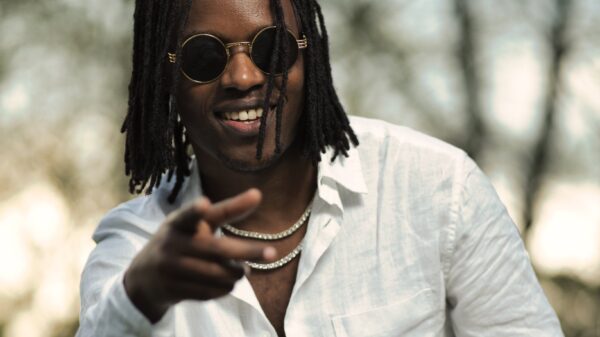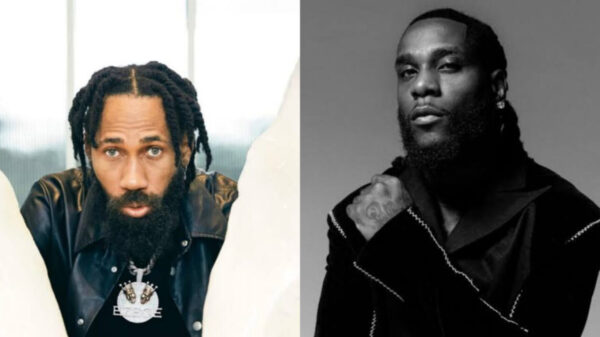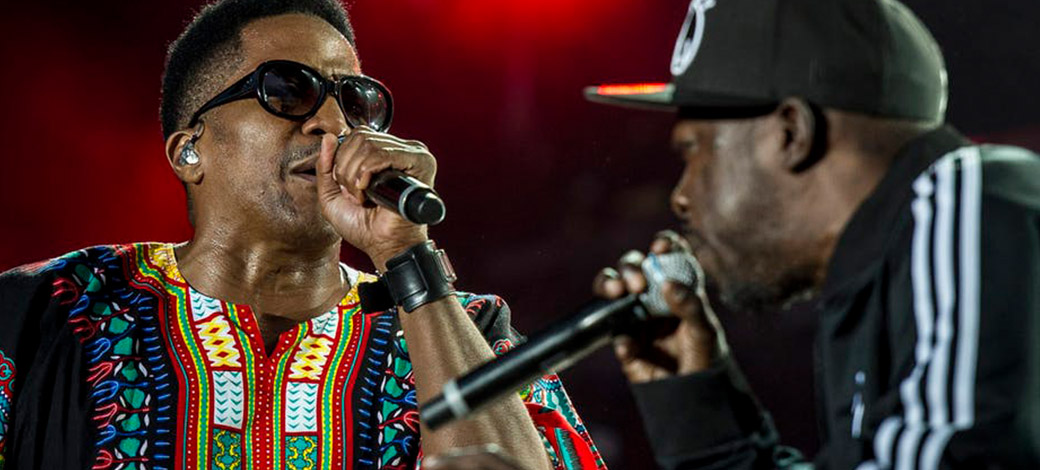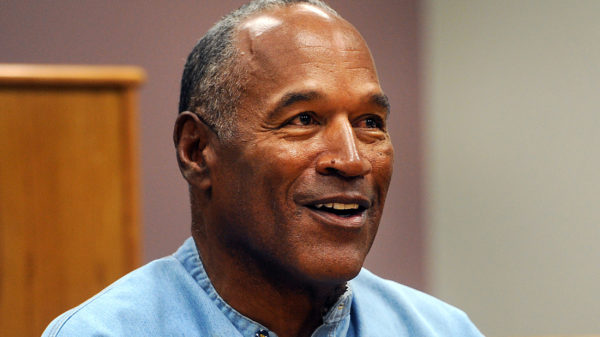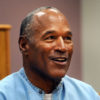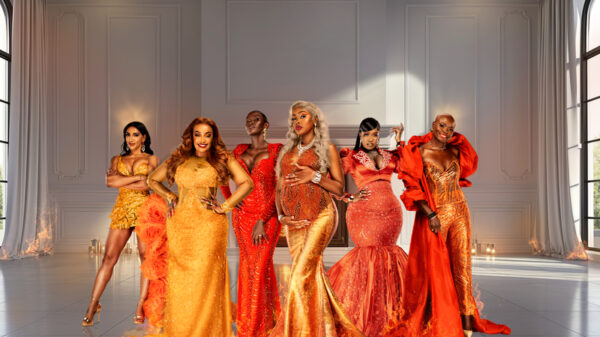Jazz’s current generation of stars grew up in these genre-fluid times with hip-hop. Concurrently, a significant number of hip-hop artists have been integrating jazz into their music. As American saxophonist Kamasi Washington puts it:
We’ve grown up alongside rappers and DJs, we’ve heard this music all our life. We are as fluent in J Dilla and Dr Dre as we are in Mingus and Coltrane.
A unique new American university course, exploring the historical connections between jazz and hip-hop, was recently announced. The only surprise is that it took so long for such a course to be designed.
One of the pioneers in fusing hip-hop with jazz, the legendary American rapper, producer and DJ Q-Tip and esteemed jazz author Ashley Kahn will present a seven-class course from September 5. The course, to run at New York University’s Clive Davis Institute Of Recorded Music, will be among the first in the world to explore the underappreciated intersections and relationships between the two genres.
Heavily influenced by jazz, Q-Tip is best known for being a founder member of A Tribe Called Quest – a hip-hop collective described by the respected All Music website as:
Without question the most intelligent, artistic rap group during the 1990s, (who) jump-started and perfected the hip-hop alternative to hardcore and gangsta rap.
A Tribe Called Quest’s sophomore album “The Low-End Theory” from 1991 was a paradigm shift in hip-hop’s relationship with jazz. They set a benchmark for jazz-oriented approaches in 1990s hip-hop. The trio Digable Planets, rapper Guru’s “Jazzmatazz” project and more recently Kendrick Lamar‘s “To Pimp A Butterfly” (2015) would follow.
Kendrick Lamar’s ‘King Kunta’ from the jazz-influenced album, ‘To pimp a butterfly’.
I have long compared hip-hop with jazz. From their respective displaced origins, political messages, and continually shifting and reinventing of music paradigms, both genres have moved generations and offered alternative histories to the western mainstream canon of knowledge.
While news of Q-Tip’s programme is hugely welcomed, the idea that hip-hop – and jazz artists are teaching in institutions in the US is not new. What’s missing is the permanence that a full programme in hip-hop studies can offer, a chance to pursue real critical and engaged inquiry through both practice and theory.
‘Jazz (We’ve Got)’ from A Tribe Called Quest’s influential second album The Low-End Theory.
What’s going on
For many years, socio-politically charged artists like Chuck D and KRS-One have delivered weighty lectures and seminars. Pioneers such as DJ Jazzy Jay have given talks on the missing histories of hip-hop.
More recently, Killer Mike, Chance the Rapper and Talib Kweli have given talks and taken part in discussion panels on topics connected to race relations, streaming services and religion in hip-hop.
Concurrently, there is a recent wave of academics pushing the growing field of hip-hop studies. It was triggered by the early academic texts of authors like Craig Castleman and Tricia Rose, and crystallized in “That’s the Joint!: The Hip-Hop Studies Reader” from 2003. In January this year, a new hip-hop studies book series was launched by the University of California Press. Led by H. Samy Alim and Jeff Chang it promises to be hugely successful in extending the debate worldwide.
Educators like Bronx native Dr. Edmund Adjapong are using the essence of hip-hop in the classroom and finding strategies for connecting with students in the urban realm. Other notable hip-hop-led teaching methodologies are discussed in Marcella Runell and Martha Diaz’s “Hip-Hop Education Guidebook: Volume 1” – it contains lesson plans for the incorporation of hip-hop into the study environment. Several UK institutions are launching hip-hop modules such as SOAS University of London, where a theoretical elective “Global Hip-Hop” runs, also the University of Cork have launched a module exploring hip-hop and post-colonial perspectives which are much welcomed.
And within the structure of academia, multidisciplinary work is being increasingly explored as creative silos are challenged, which comes at a time which sees cuts in arts education across the board. This offers two opportunities for practitioners and theorists of hip-hop culture to strategically influence and enhance educational institutions.
Firstly, the multidisciplinary content of hip-hop’s knowledge base presents theoretical richness in the fields of sociology, visual and sonic arts, religious, gender and cultural studies, critical race theory and art history. Secondly, the variety in the skill base of hip-hop practice supports performance, dance and music production. It also provides a range of design disciplines as well as confidence building skills in teamwork, presentation and public speaking methods.
What’s missing
If hip-hop culture can be such a positive force in the dynamics of education, why is it not commonplace to find such an ethos embedded within academia in Europe and Africa? I would suggest this is due to hip-hop’s origins and transatlantic journey.
Since its inception in 1973 hip-hop spent almost a decade in the US evolving into its identifiable elements of rap music, graffiti, and knowledge. Its global export through various music and film representations only happened in the early eighties. During that decade the influence of hip-hop on South Africa during apartheid critically addressed issues surrounding racism and the class struggle. In Europe, hip-hop has also grown and developed into its own over a period of 35 years. Yet in terms of a creative educational arena upon which to draw, it still remains liminal.
Why is it that the theoretical work seems to be gathering more momentum than the practical applications in university teaching? Perhaps the depth and length of researchers’ inquiries have already laid the foundations for the progression of hip-hop studies.
Within teaching situations, the idea of hip-hop studies as a discipline is relegated to the occasional, informal and semi-structured workshop session. These seem to exist at school-level or after-school clubs only. Activities like these are, of course, very welcome. However, educators and practitioners need to be mindful that their positive contributions are built upon. It should lay foundations to frame bigger questions for teaching and learning opportunities.
There is a marked difference between hip-hop artists and practitioners visiting academic institutions and academics developing hip-hop research from within academic institutions. A greater synergy between academics and practitioners is needed to progress hip-hop studies and be taken seriously as a core area for study.
This article was written by Adam de Paor-Evans, Principal Lecturer in Cultural Theory / Research and Innovation Lead, School of Art, Design, and Fashion, Faculty of Culture and the Creative Industries, University of Central Lancashire
This article was originally published on The Conversation. Read the original article.
![]()





















